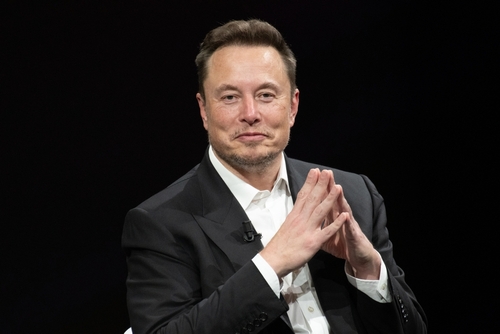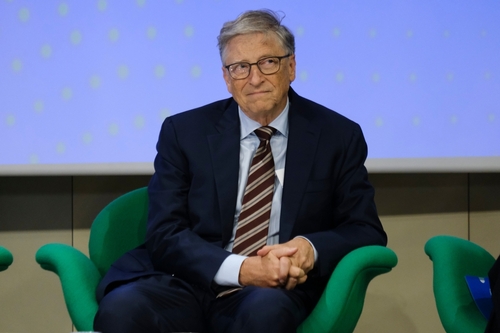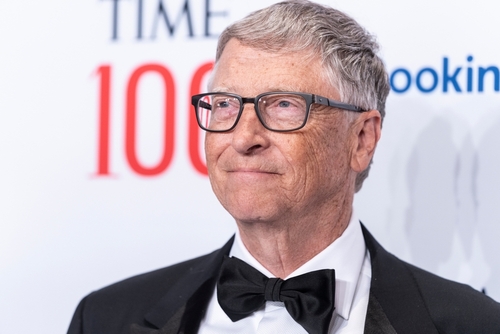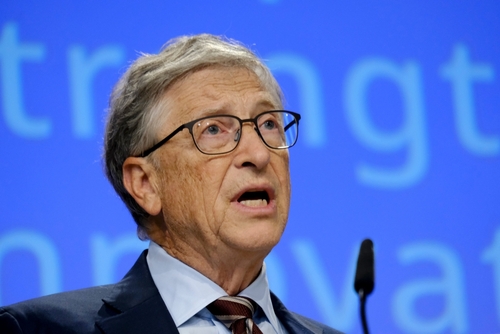Bill Gates has long supported philanthropic causes through the Bill and Melinda Gates Foundation. But in a recent interview, he took things further, announcing his intention to donate all of his estimated $200 billion net worth by the year 2045.
This timeline aligns with Gates’ belief that the next two decades will be critical for fighting poverty, climate change, and disease. “I’ve always said I plan to give it all away,” he said, “but now we’re moving faster. The world doesn’t have time to wait.”
He emphasized a strategic shift toward high-impact causes like malaria eradication, pandemic prevention, food security, and clean energy innovation. “If we don’t act urgently,” Gates warned, “we’ll lose millions more lives that could have been saved.”
A Growing Rift Between Tech Titans

What shocked many wasn’t just the size of Gates’ philanthropic commitment—but his sharp comments about fellow billionaire Elon Musk. During a panel at the Geneva Global Health Forum, Gates criticized what he called “tech saviorism without accountability,” saying that Musk’s ventures are contributing to worsening inequality.
“Elon Musk is not focused on the poorest people in the world,” Gates said. “In fact, he’s killing them—indirectly—by dragging capital, attention, and talent away from the problems that matter most.”
Gates cited examples such as space tourism, crypto speculation, and AI weaponization as “distractions” that are pulling resources from urgent global needs. “We have 5 million children dying each year from preventable causes. That’s where billionaires should be putting their money.”
Elon Musk Responds With Characteristic Fire

Musk didn’t stay quiet. Within hours of Gates’ comments going viral, the Tesla and SpaceX CEO took to X (formerly Twitter) to fire back.
“Bill Gates thinks building reusable rockets is ‘killing poor kids’? Interesting logic,” Musk posted. “Maybe curing malaria with spreadsheets isn’t enough.”
He followed up with a meme mocking Gates’ physical appearance alongside a rocket labeled “relevance lost.” The post, while quickly deleted, had already gained over 12 million views and sparked a firestorm of debate.
Philosophies Collide: Earth vs. Mars

This isn’t the first time the two billionaires have clashed. Their feud traces back years, with disagreements over electric vehicles, climate solutions, and even COVID vaccine distribution. Gates believes in solving earthbound problems first; Musk wants to make humanity multi-planetary.
To Gates, solving malnutrition or building solar panels for rural Africa makes more sense than colonizing Mars. “If we can’t save this planet, what makes you think we deserve another one?” he asked.
Musk, meanwhile, views space exploration and artificial intelligence as essential to human survival. “We need to hedge our bets,” he’s said, “in case something goes wrong on Earth.”
Read More: Pro boxer Manny Pacquiao won $1.5 million, used it to build 1,000 homes for the poor
What $200 Billion Could Really Do

Gates’ $200 billion donation plan could reshape the future of global development. Experts estimate this money could:
- Vaccinate every child in low-income countries for the next 20 years
- Fully fund malaria eradication efforts globally
- Provide clean drinking water to over a billion people
- Support sustainable agriculture in every region facing food insecurity
The Gates Foundation already spends around $6 billion annually. With this new pledge, that number could double or triple over time.
Many in the global health and development communities are praising Gates’ announcement. “This is historic,” said Dr. Agnes Binagwaho, former health minister of Rwanda. “If other billionaires followed his lead, we could eliminate extreme poverty by 2050.”
The Debate Over Billionaire Responsibility Intensifies

The Gates vs. Musk feud highlights a bigger conversation around billionaire responsibility. Should the ultra-wealthy focus on solving today’s crises or investing in long-term sci-fi visions?
Gates’ view is rooted in data, global health priorities, and measurable impact. Musk argues that disruptive innovation will eventually benefit everyone, even the poorest.
Some say both approaches can coexist. Others believe philanthropy without systems change is just a bandage. And critics of both men note that no billionaire should have this much power to begin with.
Final Thought: Two Futures, One Planet

As Gates accelerates his plans to give away $200 billion, and Musk continues to chase the stars, the world watches the clash of two very different futures.
One billionaire is trying to lift the world’s poorest people today. The other is preparing for a future beyond Earth. Their legacies will be shaped not just by their money—but by the lives they affect along the way.
Whichever side you land on, one thing is clear: the decisions made by people like Gates and Musk have the power to shape the destiny of billions. The stakes couldn’t be higher.
Read More: Billionaire wants to build equitable utopia in the American desert

